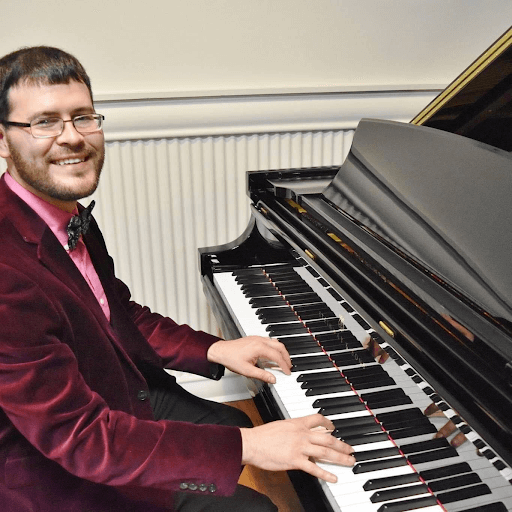More Than a Music Teacher.
St. Luke's: How old were you when you started playing the piano?
Daniel Driskell: I began at age 7.
SL: What made you want to start taking piano lessons?
DD: My dad forced me to play. He wanted me to play music for church services. But eventually I began to love making music.
SL: First song you learned to play?
DD: I can’t remember! But I do love sending all of my students home with a song or two every lesson!
SL: What is the most advanced piece you have mastered?
DD: In graduate school I spent countless hours practicing pieces by Bach, Chopin, Prokofiev and others. One of my distinguished teachers told me a piece was too hard for me…so I persisted and worked hard to learn the “Mephisto Waltz” Franz Liszt because I loved the sound of it and had to prove to my teacher that I could do it!
SL: What types of music do you like to play the most?
DD: I love many types of music. For enjoyment, I love to improvise and play music that is a blend of styles.
SL: Where have you all played the piano (church, college, weddings, teacher…..etc).
DD: Playing music can take you all sorts of places. I have enjoyed making music in churches, theaters, concert halls, weddings, and even on the beach.
SL: What advice would you give a young person that is thinking about getting into piano lessons?
DD: It takes time and persistence but it is totally worth. I have never met anyone who said “I’m glad I quit playing the piano”.
SL: What advice would you give to someone who is older and is thinking about taking piano lessons?
DD: Music lasts a lifetime.
SL: What methods do you use to teach piano?
DD: I use many different ones including Alfred and Faber.
SL: What advice would you give someone that is thinking about giving up on the piano?
DD: That’s ok. I have students that take for one year or two and then stop. You can always come back later if you like. But it is easier to succeed when you start at a young age.
SL:
Advantages of being a piano player?
DD: You get in free for many nice events and often get paid to enjoy your art.
SL:
Describe the best performance you have ever given. What made it special?
DD: I have enjoyed many concerts and performances. While my solo recitals were often very successful, I think playing in a group is more fun and you feel like a team that worked together.
SL:
How do you cope when dealing with a disinterested or disrespectful audience?
DD: I try to talk to the audience and engage them. You can’t reach everyone but you can try.
SL:
As a piano teacher, what do you think makes a good pianist?
DD: There are many things: theory, technique, sight reading, accompanying, transposing, improvising. But ultimately you can be a good pianist by just playing songs you enjoy.
SL:
What would you consider the three most important traits of a good piano teacher?
DD: Kind, encouraging, patient.
SL:
What is your most treasured possession?
DD: My family.
Thanks Mr. Driskell for helping us celebrate National Piano Month!

